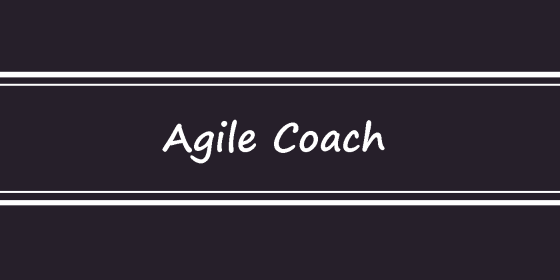Agile Coach

An Agile Coach is a professional who plays a crucial role in guiding and supporting individuals, teams, and organizations in adopting and implementing Agile methodologies and practices effectively. Agile Coaches act as mentors, facilitators, and change agents, helping teams and organizations navigate the complexities of Agile transformations and optimize their Agile practices to achieve better results.
Key responsibilities and roles of an Agile Coach include:
- Mentorship and Training: Agile Coaches provide training and coaching to individuals and teams on Agile principles, frameworks (e.g., Scrum, Kanban), and practices. They help team members understand the Agile mindset and how to apply Agile principles to their work.
- Facilitation: Agile Coaches facilitate various Agile ceremonies and meetings, such as Sprint Planning, Daily Stand-ups, Sprint Reviews, and Sprint Retrospectives. They ensure that these events run smoothly, encourage participation, and foster open communication.
- Continuous Improvement: Agile Coaches promote a culture of continuous improvement within teams and organizations. They encourage experimentation, feedback, and adaptation to enhance productivity and outcomes.
- Removing Impediments: Agile Coaches help teams identify and overcome obstacles and impediments that hinder their progress. They work with teams to find solutions and create a supportive environment for success.
- Team Dynamics: Agile Coaches assist in building high-performing, self-organizing teams. They focus on improving collaboration, trust, and communication among team members.
- Agile Transformation: For organizations transitioning to Agile, Agile Coaches lead and support Agile transformations. They work with leadership to define Agile strategies, establish Agile frameworks, and align organizational culture with Agile values.
- Scaling Agile: Agile Coaches assist organizations in scaling Agile practices across multiple teams or departments. They help implement frameworks like SAFe (Scaled Agile Framework) or LeSS (Large-Scale Scrum) and address challenges in large-scale Agile implementations.
- Stakeholder Management: Agile Coaches work closely with stakeholders to manage expectations, facilitate communication, and align organizational goals with Agile practices.
- Change Management: Agile Coaches understand the impact of change on individuals and teams. They support and guide teams through the change process, addressing resistance and fostering a positive mindset.
- Agile Metrics and Reporting: Agile Coaches help teams and organizations establish relevant metrics and reporting mechanisms to measure Agile progress and performance.
Agile Coaches bring a wealth of experience and knowledge to the table, having worked with various Agile teams and organizations. They are skilled communicators, empathetic listeners, and champions of Agile values and principles. Their role is crucial in creating a sustainable Agile environment that fosters continuous improvement, collaboration, and customer-centricity.